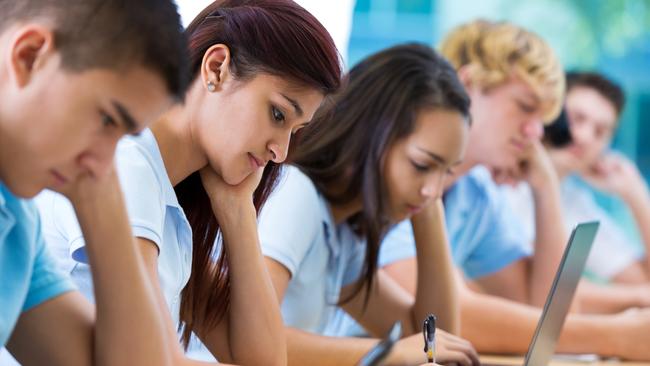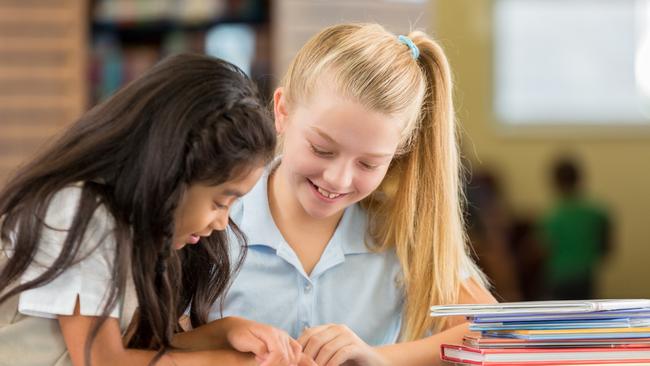Schools told to declare climate emergency, ‘boys and girls’ phrase banned
Schools have been told to declare a climate emergency in a new book which also tells teachers to ban phrases including girls and boys.
Education
Don't miss out on the headlines from Education. Followed categories will be added to My News.
Teachers are being told not to use phrases like “girls and boys”, “normal’’ and “other’’ in class – but they should make students aware of “superdiversity’’ and “declare a climate change emergency’’ as a way of “telling the truth’’ about our “climate breakdown’’.
The instructions form part of a new suite of education policies laid out in a guidebook designed by academic boffins.
The book called Building Better Schools with Evidence Based Policy, edited by Monash University staff, was released in April.

It contains a series of pro-forma policies for schools to implement across a range of educational issues from learning to read to alcohol abuse.
The book’s 40 chapters include one called Declaring a Climate Emergency and states doing so “is a concrete indication of a school’s willingness to commit to telling the truth about the reality of climate breakdown”.
“An associated policy should be used to bring the school community together, drawing on the energy, ideas, and capacities of the school community, even though the policy is likely to be demanding and far-reaching,” it reads.
In response to questions from The Daily Telegraph about whether or not it was the role of schools to instil a political stance in children, the chapter’s author, academic Alan Reid, said parents were free to disagree with the policy.
“But a school can also listen and challenge particular viewpoints, and make clear what stays at the school gate, so to speak, given what the social contract on education is,” Mr Reid said.
A separate chapter on raising awareness on “superdiversity” told teachers to stop using phrases such as “English as a second language” and instead use the term “emergent bilingual”.
Superdiversity is the way different aspects of one person’s diversity interacts with one another, the book states.

That chapter also instructs teachers to “actively embrace diversity’’ and will specifically focus on discouraging unhelpful social concepts such as “normal” and “other”.
Critics of the book include author and radio personality Kel Richards, whose recent book Flash Jim detailed the development of convict language in Sydney. He said trying to remove concepts like “normal’’ from the classroom was futile.
“The word ‘normal’ is still going to be in the language,’’ he said. “Whatever they do in the classroom, whatever they say, whatever report comes out, the word ‘normal’ will still be there and we’ll still have a use for it.”
It was a similar story for replacing terms like “English as a second language’’.
“If you have one language and you’re learning English as a second language, I’m sorry, that’s a fact,’’ he said.
But the chapter’s co-author Dr Ruth Fielding told The Daily Telegraph: “When we only focus on English, it undermines the potential of people who are skilled in multiple languages to develop their English skills.”


